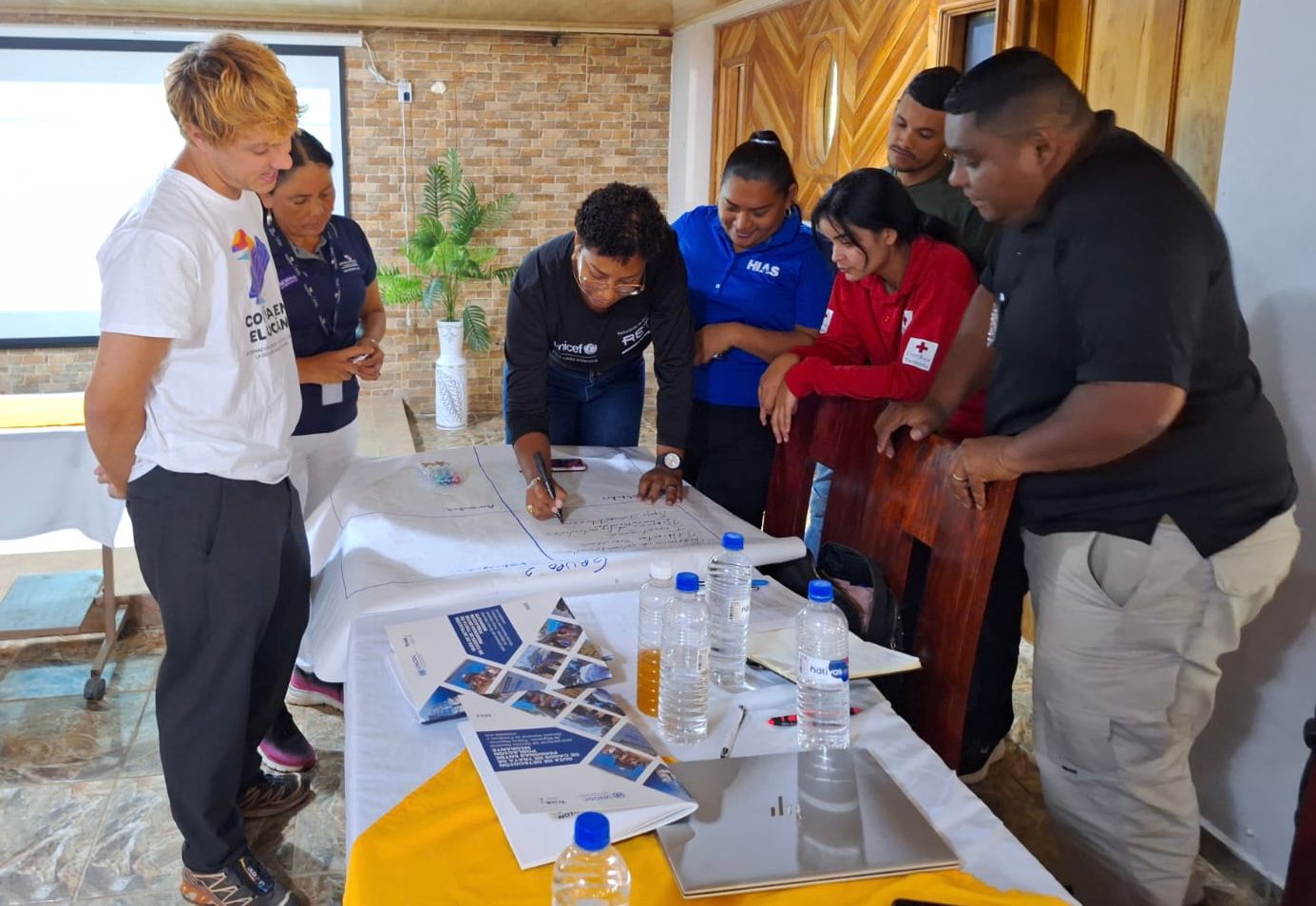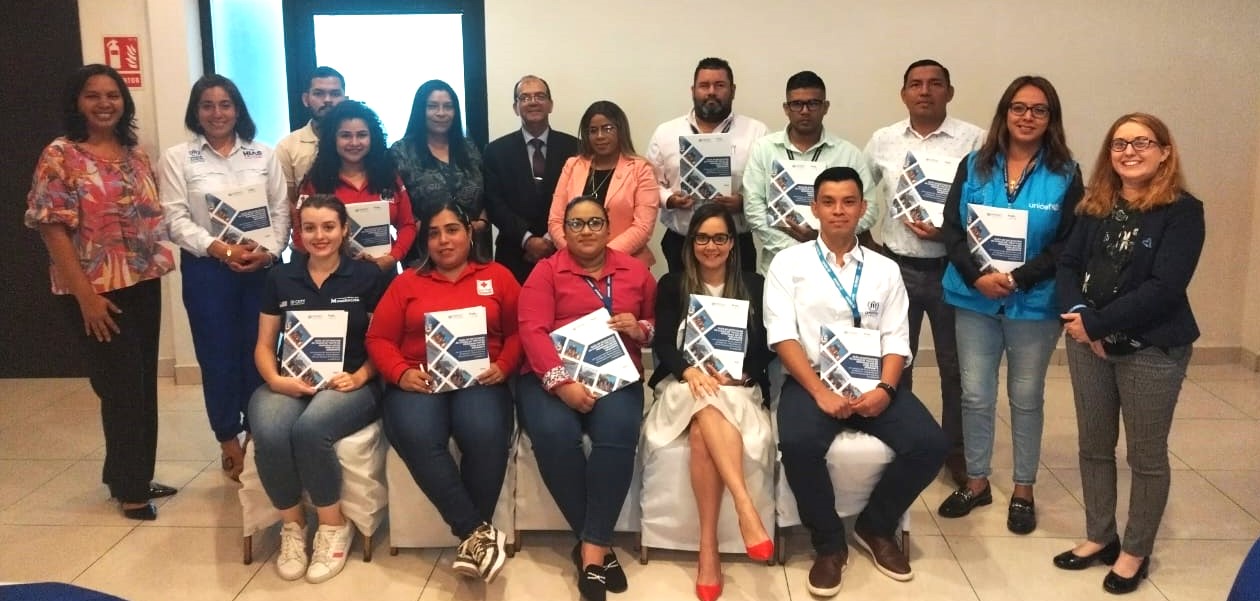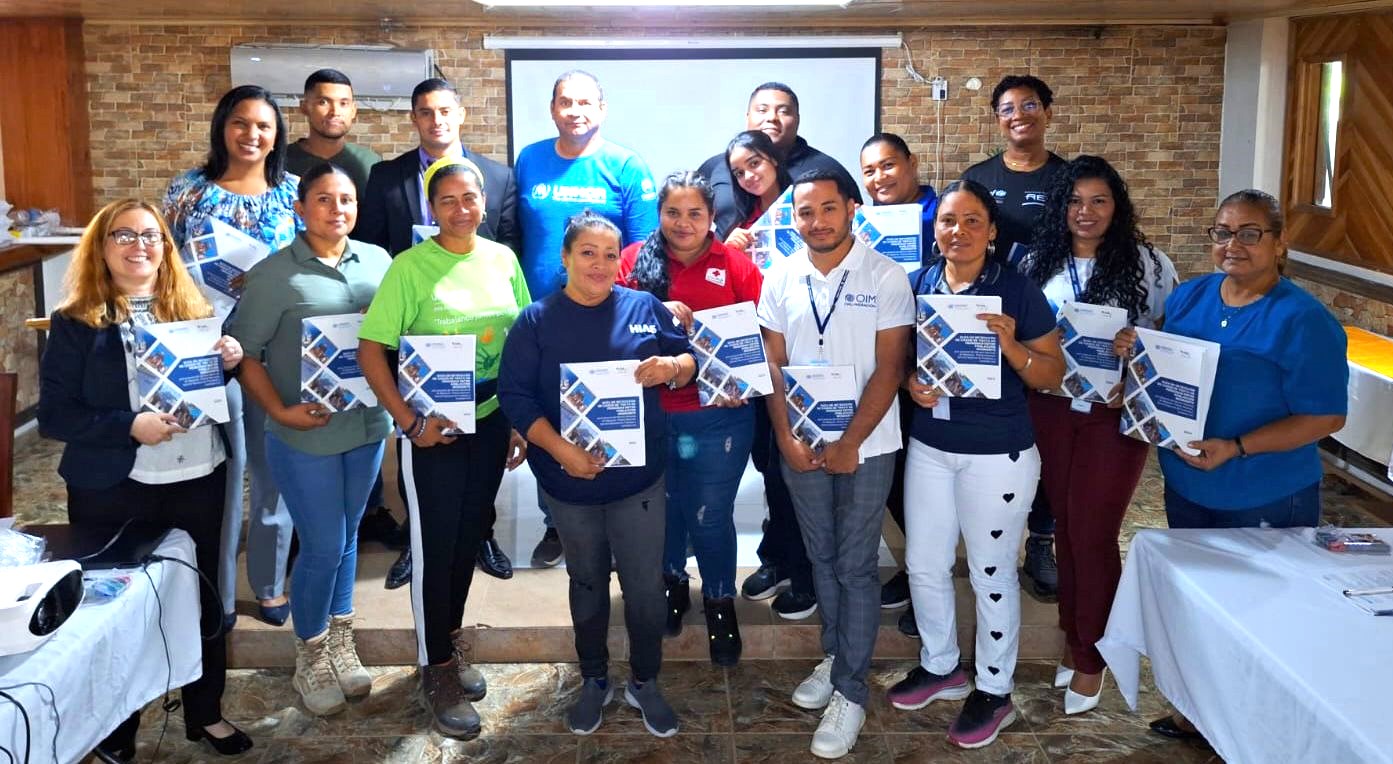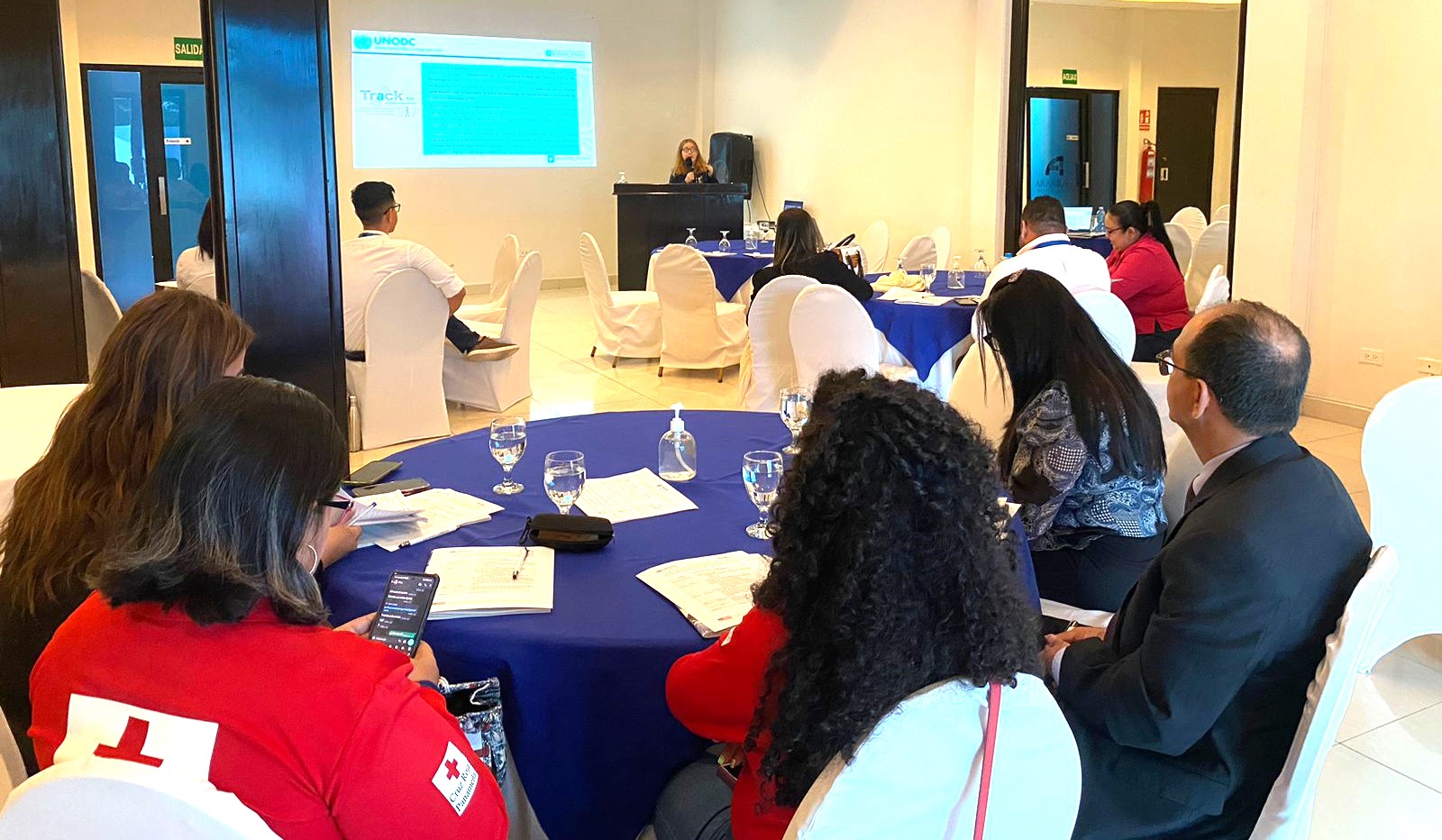Panama City, February 22, 2024. The United Nations Office on Drugs and Crime (UNODC) organized two sessions in the provinces of Darién and Chiriquí to present a guide on detecting cases of human trafficking among migrant populations.
These capacity-building spaces, conducted through the Track4Tip Initiative, were dedicated to personnel from the National Migration Service, National Police, National Border Service, and civil society.
The event was led by Sandra Sánchez Vicario, Institutional Strengthening Advisor of UNODC ROPAN, and Delia De Castro, national consultant.
Representatives from various state institutions participated in the activity, including the Public Prosecutor's Office, the Ministry of Security (National Border Service, SENAFRONT, and Directorate of Judicial Investigation of the National Police DIJ), the Ministry of Women, the National Secretariat for Children, Adolescents, and the Family (SENNIAF), the Office of the Ombudsman, and civil society organizations such as the Panamanian Red Cross, HIAS, RET, Médecins Sans Frontières, and UN agencies including UNICEF, UNHCR, and the International Organization for Migration (IOM).
Given the significant irregular migration in the Republic of Panama, mainly from South America, the Caribbean, and other extraterritorial territories in recent years, there is a need to closely examine this aspect.
The occasion provided an opportunity to present the content of the guide, including migration risks associated with the crime of human trafficking, as well as indicators to detect cases, victims, and traffickers.
Participants appreciated the meeting, which also allowed for coordination between institutions and organizations, exchange of experiences, critical points, and challenges in handling cases of human trafficking in mixed migration flows, in the specific context of Darién and Chiriquí.
Despite significant efforts made, additional mechanisms are pertinent to enable migration officials, police, and representatives of civil society who, for various reasons, come into contact with individuals in mixed migration contexts, to detect potential victims of human trafficking; understand mechanisms for their referral, know the rights of those affected by these crimes, and through which mechanisms they are materialized, so that they can access justice, care, protection, and eventually, reparation.
About the TRACK4TIP Program
TRACK4TIP is an initiative implemented by the United Nations Office on Drugs and Crime (UNODC) until 2024, with the support of the United States Department of State's Office to Monitor and Combat Trafficking in Persons (JTIP).
The project, which started in 2019, benefits several countries in South America and the Caribbean with national and regional actions in Aruba, Brazil, Colombia, Ecuador, Panama, Peru, the Dominican Republic, and Trinidad and Tobago.
The overall objective of the project is to improve the regional criminal justice response to human trafficking in the migration flows of beneficiary countries through a multidisciplinary and victim-centered approach, with regional and national actions to identify, prevent, and prosecute cases.
This press release was made possible with the support of the United States Department of State, under Agreement No. SSJTIP19CA0027.
The opinions expressed in it are those of the author(s) and do not necessarily reflect the views of the United States Department of State.
To access the guide,
click here.
![]()



